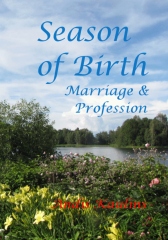1) contributing to the ill-fated drafting of the 1952 US Patent Act;
2) writing "holdings in which the court struck down prior rules against the patenting of living things (Chakrabarty v. Diamond), software-implemented inventions (In re Diehr), and business methods (State Street v. Signature Financial), saying those rules did not have a proper basis in the patent statute (which he had co-written), and opening the way for inventors to receive patents in those areas of subject matter...."; and,
3) especially writing the unwise opinion in the 1998 State Street case [State Street Bank & Trust Co. v. Signature Financial Group, Inc., 149 F.3d 1368 (Fed. Cir. 1998), 47 U.S.P.Q.2d 1596, reversing 927 F. Supp. 502 (D. Mass. 1995), cert. denied, 525 US 1093 (1999), U.S. Law Week (Jan. 11, 1999)], which disastrously overturned 90 years of patent law precedent and practice.
Indeed, when Judge Giles S. Rich wrote his now precedential opinion in the State Street case - overturning 90 years of US patent law precedent - he himself was 94 years old!
The 1952 US Patent Act and the State Street case represent major - and we think clearly unconstitutional - legal detours which have led to the confused and chaotic state of patent law in the United States today.
How can the United States entertain a legal system in which tenured judges are deciding the law of the land at age 94? Just imagine a major corporation being run by someone of that age - what are the odds that correct decisions would be made which would be in concert with the spirit of the age and the needs of the times? Very small, indeed.
We are aware that Judge Rich was a respected man in many quarters and that at the time of his passing he was not only the oldest federal judge, but also the oldest active judge in US history (you can not force a tenured judge to retire), having been appointed in 1956 to the Court of Customs and Patent Appeals by President Dwight D. Eisenhower. [Note: The U.S. Court of Customs and Patent Appeals was merged with the U.S. Court of Claims in 1982 to form the U.S. Court of Appeals for the Federal Circuit.]
Indeed, for all we know, Judge Rich may have been a likeable and talented person in his personal and social relationships. However, we view his legal legacy with considerable disdain.
We definitely agree with the 1999 opinion in the Linux Journal in Internet Patents: Giving Away the Store in assigning Judge Rich a less than noble position in the development of US patent law. LJEditors (Bryan Pfaffenberger) writes:
"[Y]ou're about to find out how we got into this mess. Let's start with patent attorney Giles S. Rich, who in 1952 chaired a congressional commission that rewrote the Patent Act.
The Patent Act's language, dating back to 1790, enumerated patentable subject matter in the following terms: "any new or useful art, machine, manufacture, or process of nature". In place of "art", the Giles-led commission recommended that Congress use the word "process" instead. This was no insignificant updating. The history of technology reveals that the term "art" nicely captures the Constitution's intent in that, in this context, it refers to the non-scientific skills and techniques that a successful practitioner uses. In contrast, "process" could include scientific processes, such as those employed in industry. It seems reasonable enough to extend patent protection to industrial processes, but you shouldn't be naïve about Giles' intentions. In the early 1950s, Giles embarked on a single-minded, decades-long campaign to greatly expand the scope of patent protection to "anything under the sun made by man", as the Giles-led commission put it. Subsequently, Giles fought for the legislation and jurisprudence that enable biotechnology firms to win patent protections for engineered life forms."
And that is where we are today. PATENT LAW CHAOS. Thanks in large part to Judge Rich.
A US Senate tribute to Judge Rich contains the following story:
"Judge Rich, at one time, told an attentive audience of a verse his mother would recite, 'The wise old owl lie in an oak. The more he saw, the less he spoke; the less he spoke the more he heard. Why can't we be more like that old bird?'"
Yes, yes ... it is always the other guy who should keep quiet. But had our Judge Rich followed his own philosophy and kept quiet rather than writing opinions of law which have proven to be absolutely disastrous in the long term, the patent world of today would be much better off than it is.
So here is our tribute to Judge Rich:
I lied (sic) like a wise old owl in an oak
The more I saw, the less I spoke
The less I spoke, the more I heard
Of a patent law gone fully absurd...
As Shakespeare wrote:
"The evil that men do lives after them,
The good is oft interred with their bones."
Judge Rich, rest in peace....

No comments:
Post a Comment